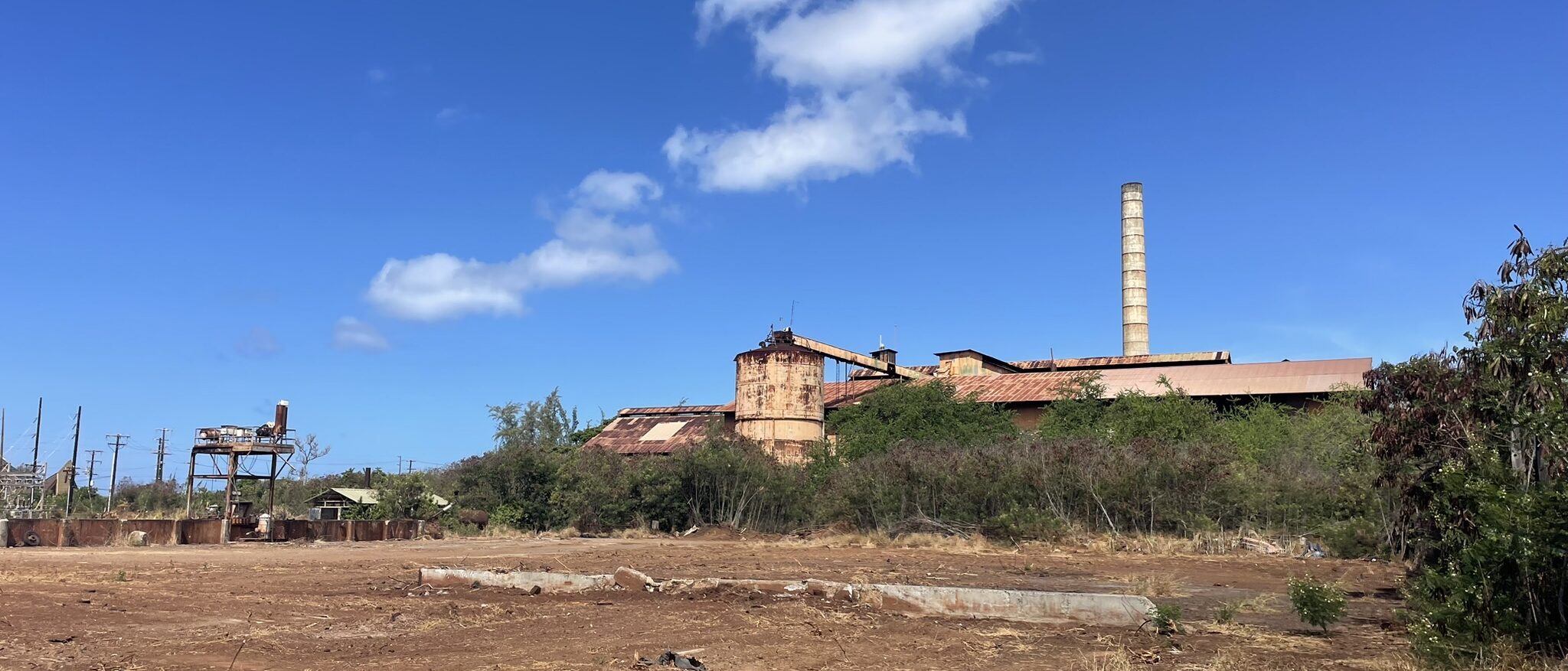
INTRODUCTION
Welcome to the official website for the Kekaha Road Brownfields Program, an initiative led by the County of Kaua‘i in collaboration with the U.S. Environmental Protection Agency (EPA). This project aims to assess and evaluate potentially contaminated properties, or “brownfields,” along the Kekaha Road corridor as a means to improve the quality of life for Kekaha residents.
Through community-based planning and the utilization of brownfields assessment grant funds, the County will work with willing property owners and other stakeholders in repurposing opportunity sites for local-serving uses, such as housing, jobs, services, and civic amenities.
What is a Brownfield?
A brownfield site is land that may be difficult to reuse or redevelop because of actual or suspected pollution or contamination.
The EPA’s Brownfields Program helps communities, states, and other partners work together to assess, clean up, and safely revitalize these sites. Through EPA funding, communities across the country are transforming brownfields into safe, usable spaces for the future.
PROJECT TIMELINE
The anticipated project deadline is early 2026. View the tabs below for more details on each project task.
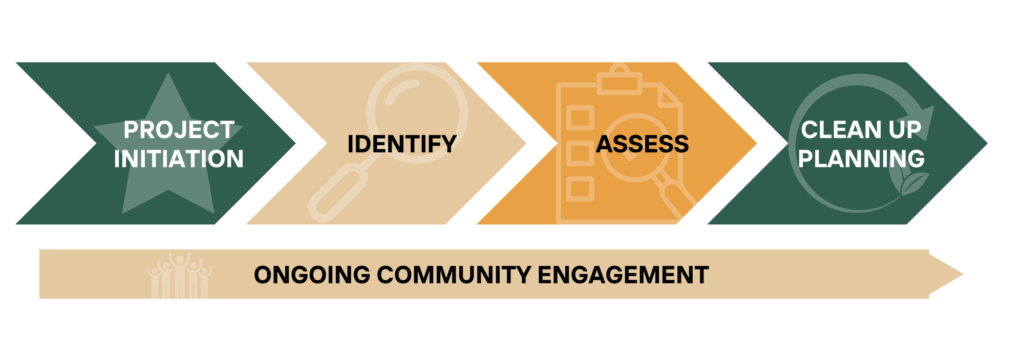
- Project Initiation
- Identify
- Assess
- Clean Up Planning
- Community Engagement
The United States Environmental Protection Agency awarded the County a Community-wide Brownfields Assessment Grant in October 2021. The County released a Request for Professional Services, similar to a Request for Qualifications, to seek a qualified environmental professional firm that could assist with program implementation. After careful review and negotiations, the County secured a contract with Stantec Consulting Services Inc. as the primary consultant to lead with assessment activities and assist with community engagement.
Task Complete. The County launched the program to the public and created a project website to post updates and upcoming outreach events.
Identify and create an inventory of brownfields properties in Kekaha: We will conduct a comprehensive survey to identify and catalog brownfields properties within the Kekaha area. These properties will be screened against specific criteria and ranked in order of priority for further assessment and cleanup.
Task Complete. The assessment of the Kekaha Road Corridor has been completed for the project area. We reached out to owners whose properties have been identified as opportunities sites. The owner of Kekaha Sugar Mill Lot B (vacant lot closer to Waimea side) has agreed to participate.
To understand the environmental conditions of former industrial sites, the County is conducting two types of environmental site assessments (ESAs):
- Phase I ESA: Experts reviewed historical records and site conditions to identify potential environmental concerns.
- Phase II ESA: Based on initial findings, select properties move to Phase II, which includes soil and groundwater testing to identify and measure possible contamination.
Task Complete: The County is currently working with the owners of Kekaha Sugar Mill Lot B to carry out Phase II activities. Soil sampling work was conducted in accordance with a Sampling and Analysis Plan that has been approved by the Hawaiʻi Department of Health and the EPA. Soil sampling at the Kekaha Sugar Mill, Lot B property was completed on May 2, 2025. County submitted the final Phase II ESA report to DOH for review.
Develop a clean-up plan for the completed Phase II ESAs: Properties assessed in Phase II may be chosen for the development of a comprehensive clean-up plan. These plans will outline the necessary actions to remediate the site, ensuring it is safe for future use and development.
Conduct community engagement: We strongly believe in the power of community involvement. Throughout the project, we will actively engage with impacted stakeholders and community members to gather input, address concerns, and ensure that their voices are heard in the decision-making process.
- February 15, 2024: A Kekaha community meeting was held in collaboration with E Ola Mau on February 15, 2024 to share more information about the Brownfields Program.
- December 11, 2025: County joined E Ola Mau’s meeting to share project updates, the soil sampling approach, preliminary test results, and potential next steps.
Why is Soil Sampling Important?
-
Identifies Contamination
Sampling helps determine if harmful substances are present in the soil, the types of pollutants, and their levels.
-
Guides Cleanup Efforts
Knowing what’s there ensures the right cleanup methods are used.
-
Supports Safe Redevelopment
Proper testing confirms the land can be safely reused.
-
Saves Time & Money
A clear understanding of contamination prevents unnecessary or ineffective cleanup efforts.
Soil Sampling Process
The Hawai‘i Department of Health requires Multi-Increment Sampling (MIS), a method used to collect small soil samples from multiple locations across a site, mixing them together to get a more accurate picture of overall contamination levels. View this video to see how the soil sampling process work. The graphic below also breaks down the sampling work in five steps. Click the right arrow to view each step.



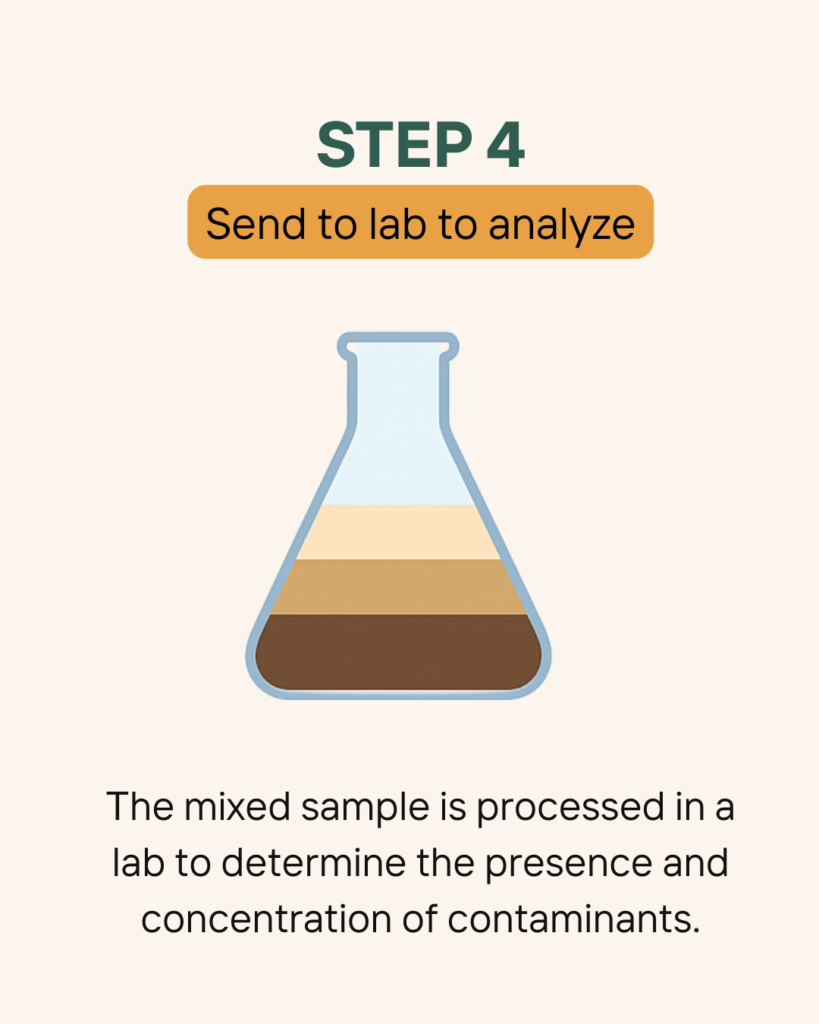
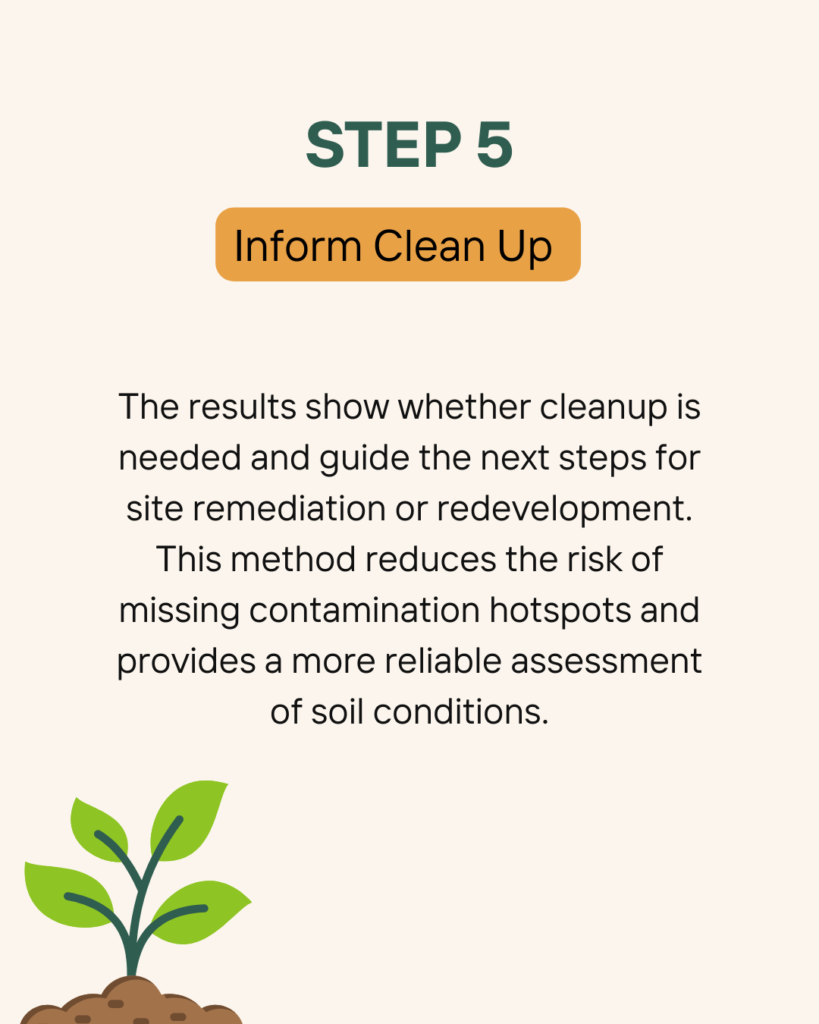
PROJECT UPDATES
Preliminary results from the environmental testing are complete. View here.
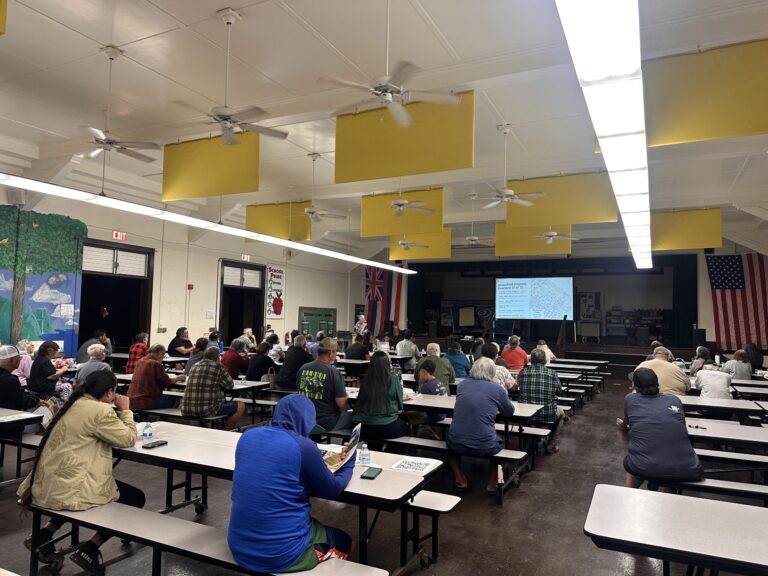
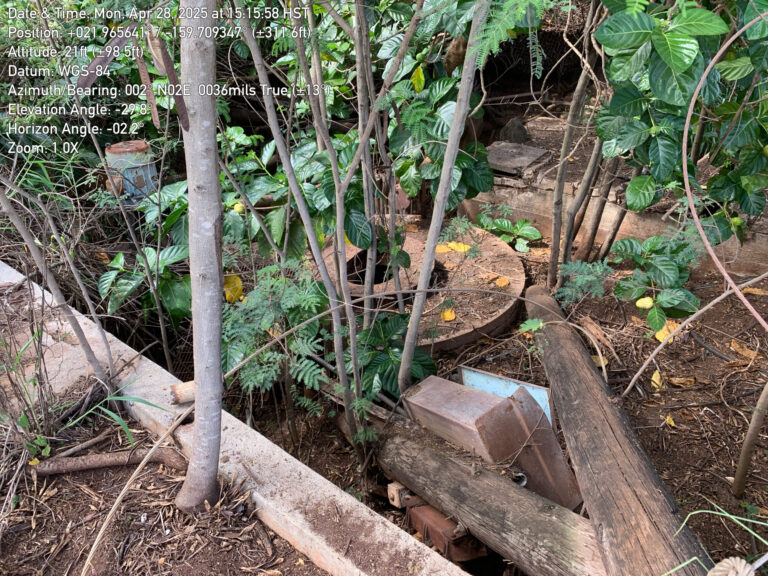
Preliminary Results
Findings show that no contaminants exceeded DOH screening levels in the areas planned for development. Lead, petroleum, and dioxins/furans were detected in the ditch sediments above DOH’s screening levels. County is awaiting comments from DOH, which may take three to six months. If approved, the property owner will work with DOH and other necessary agencies to proceed with development plans.
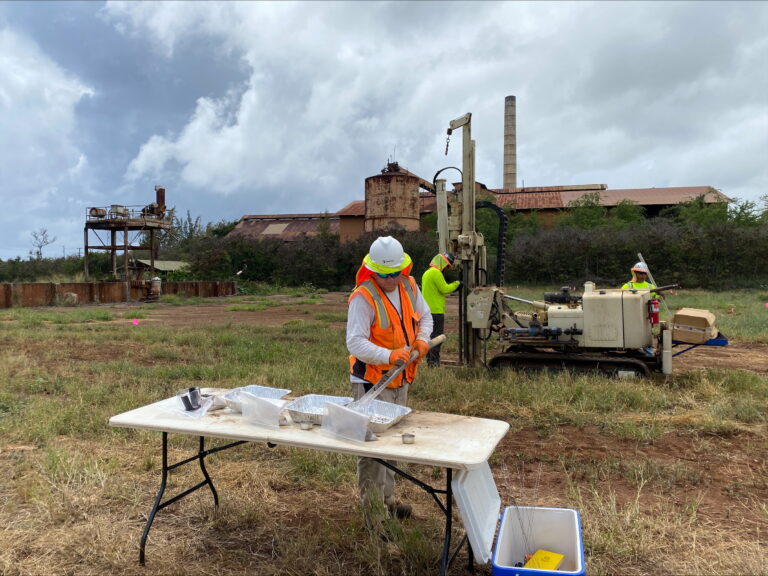
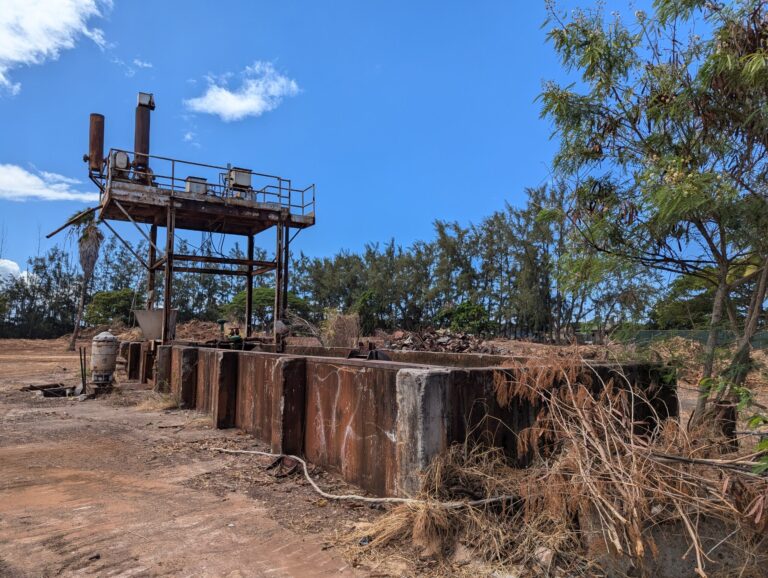
Kekaha Sugar Mill, Lot B
Aloun Farms (Kekaha Shine, LLC), the property owner of Kekaha Sugar Mill, Lot B has allowed the County to conduct sampling work on their site. The image to the right shows the boundary of the project site, located between Kekaha Road (north), Hale Lio Street (east), Kopaa Street (south), and Lot A of the Kekaha Sugar Mill (west).
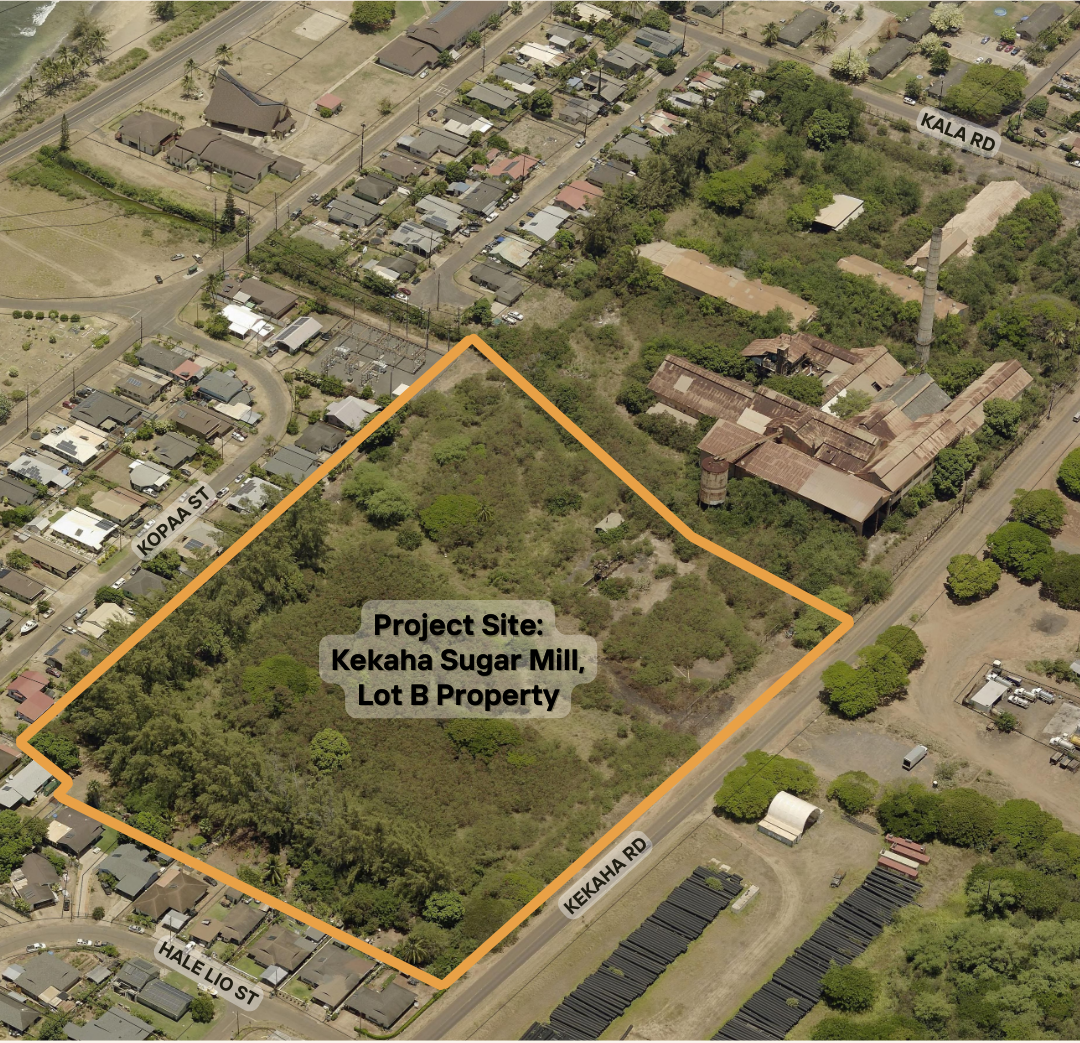
GET INVOLVED
The revitalization of the Kekaha corridor holds immense potential and aims to preserve its unique character while unlocking its potential for the benefit of the community. We invite all community members and stakeholders to actively participate in this project. Your insights and input are invaluable in maintaining the existing character while enhancing the potential of the Kekaha corridor. Below are options to stay updated on the project’s progress:
A selected group of local residents will guide environmental assessment activities and inform outreach strategies. If you’re interested, please contact us for more information.
We will host public meetings with the intent to present findings, prioritize brownfield sites, and develop a clean-up plan.
Final Meeting: Thursday, December 11, 6:00pm at Kekaha Elementary School Cafeteria.
Contact us to be added to the mailing list! We will email project updates to interested stakeholders who sign up.
CONTACT US
For any inquiries or to get involved, please contact Ana Española:
Email: aespanola@kauai.gov
Phone: (808) 241- 1968

